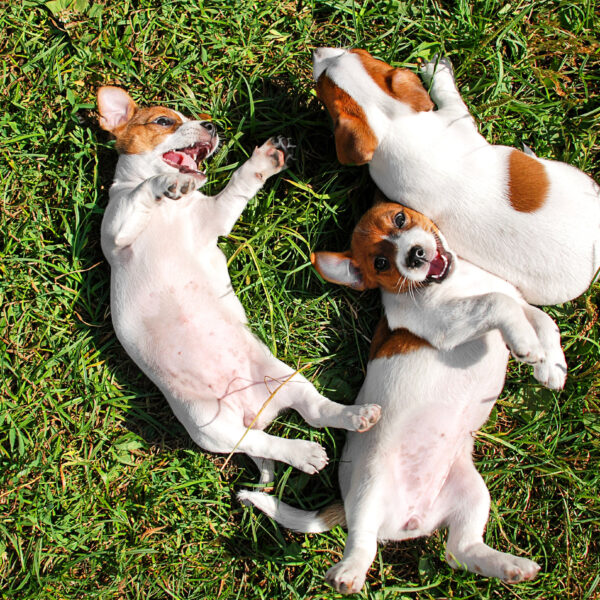National Dog Rescue day* is an occasion to mark the thousands of dogs in rescue centres, and the work that these centres do to rescue / rehome. Doing this is a costly business, and some of the time organisations do it with limited funding.
If you are considering becoming pawrent to a rescue dog, or if you are just interested to learn more, this article is for you.
*20th May.
A challenge and a reward
Adopting a dog from a rescue centre can be both a challenge and a huge reward. You will be giving them your home and probably a more secure environment than they had in the past. With a range of possible experiences a dog will have gone through, and not all of them good, you may not get to know the details of past history. However, your dog can still make this transition, and bond with you for the rest of their lives, regardless.
Being prepared, before taking on your new adoptee can help ease the change.
What to consider before rehoming a dog
Getting a rescue dog is commitment, So you will need to consider whether you have the time and energy to look after your new pup. What are your future engagements? Will you need to be away from home, or have you booked a holiday? There is the strong chance your new family member will suffer from separation anxiety, in which case you shouldn’t leave them alone for lengthy periods.
When thinking about the kind of dog you are going to rehome, here are some questions to ask:
- How much time will I have to walk and exercise my dog every day?
- Am I likely to be away from the house, and for how long?
- Will my dog be suitable for the kind of place I live in? (smaller dogs are more suitable to smaller apartments)
- What will be my dog’s diet requirements
- What can I afford in terms of outlays for food, insurance or and other needs, such as trips to vet, medication, and grooming?
- Is my place suitable for the kind of dog I’m thinking of getting? Big dogs need bigger spaces.
Choosing a rescue centre
There are a number of organisations in the UK devoted to rescuing and rehoming abandoned or unwanted dogs, and which do fantastic work – often on limited resources. It can be difficult to choose which one, so here are some things to bear in mind. A good rescue centre should do the following:
- Ask about your situation to help determine if they have the right dog for you.
- Check your home to see if it is suitable for a particular dog.
- Vaccinate
- Make sure that the dog you get will be safe for you and your situation
- Provide support.
Introducing your rescue dog to the home
Your new dog is likely to feel a little apprehensive and nervous about coming into a fresh environment. Any planning you can do in advance, is therefore going to be helpful. Where you can, get as much information from the rescue centre, including what kind of food to feed them, and any allergies or reactions they have.
Once you know about about your dog’s preferences, it is a good idea to stock up on tasty snacks. Wufwuf’s range of air-dried dog treats are available in six flavours (either singularly or in a bundle) For a longer lasting chew, you could try Chewerest: an all-natural and gluten free stick made of Yak’s milk.
It is best not be too indulgent though, and neither overfeed, nor give too many treats. Also If you start giving your dog your own food, they will probably come to expect it in the future
As well as treats you’ll want to make sure you have one or two toys ready, including something squeaky and / or fluffy. These will help them keep occupied.
Additionally, be be prepared with a collar and a lead, and a safe space that your dog will later be able to relate to as their own. This could be where they also go to sleep. For this, you could consider using a crate, which can help a dog feel safe.
If you have other pets, for example a cat, it’s best to gradually introduce the two in stages. For more information see our dedicated post: How to make a cat and a dog become friends.
.
Nervous dogs
There is a chance that your rescue dog will be nervous and fearful. Many have had unpleasant experiences, and can be distrustful of other humans or other dogs. They may not like being in a car, or shy away from certain sounds and smells. They need you to help build their confidence and trust, although it may not be possible to get rid of all nervous reaction
Rescue dog or puppy?
By this time, you’ll already have decided, and got your dog. With a puppy, you’ll be able to train, but obviously one of those is going to take a lot of time and effort. Older dogs can be great, and there is no reason why one shouldn’t become fully at home with you. You won’t have to put in as much training time, but pet insurance is going to be more, the older the dog. This will be one of the final things to sort out in the process of getting a rescue dog.
You’ll be the hero
You’ll be a hero to your new dog, should you decide to get one.
National Dog Rescue Day has mostly been celebrated in the United States, but we think it is a good time to remind everyone of how many rescue dogs need saving.
Our partner organisations All Dogs Matter is one such organisation that works to rehome dogs, including greyhounds that once raced and are now abandoned.
Looking for something great to treat your dog with each month? Try our themed subscription boxes.





Leave a Comment